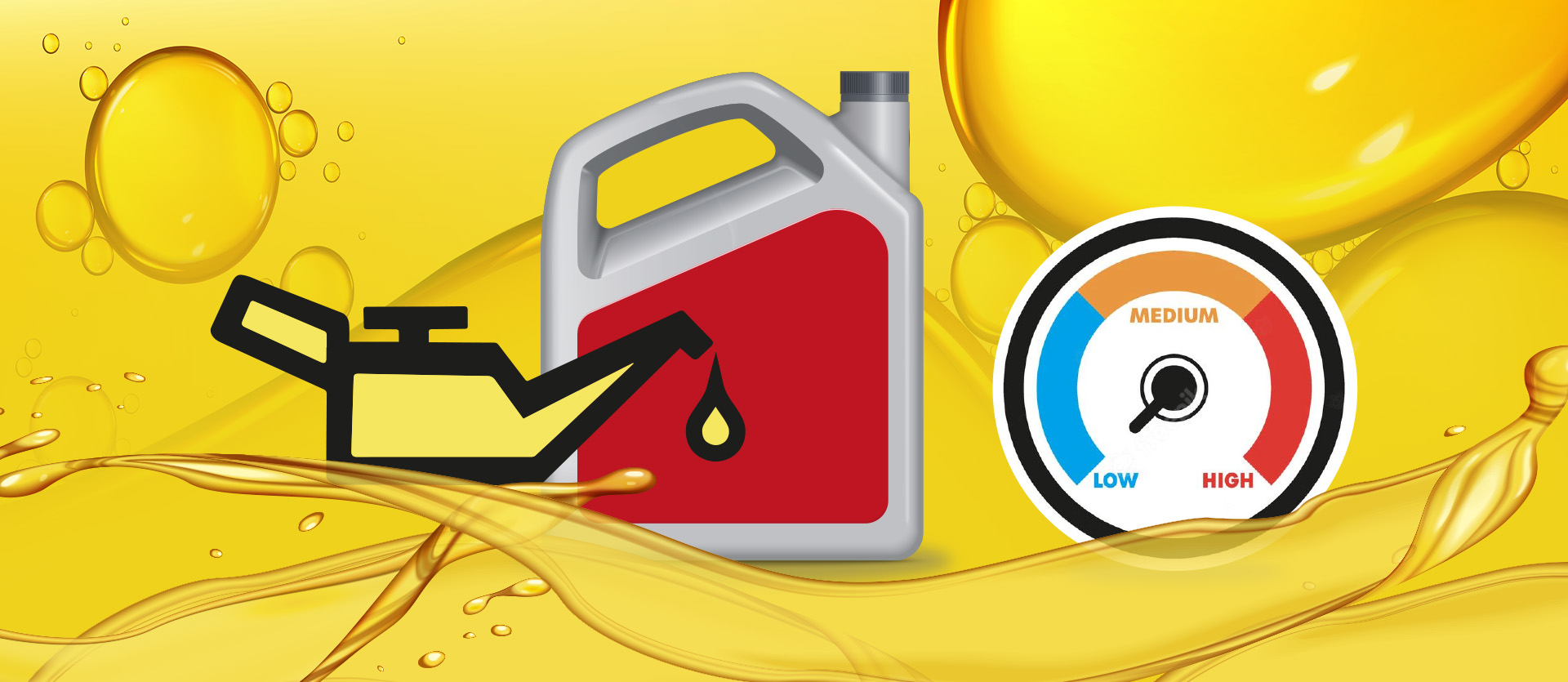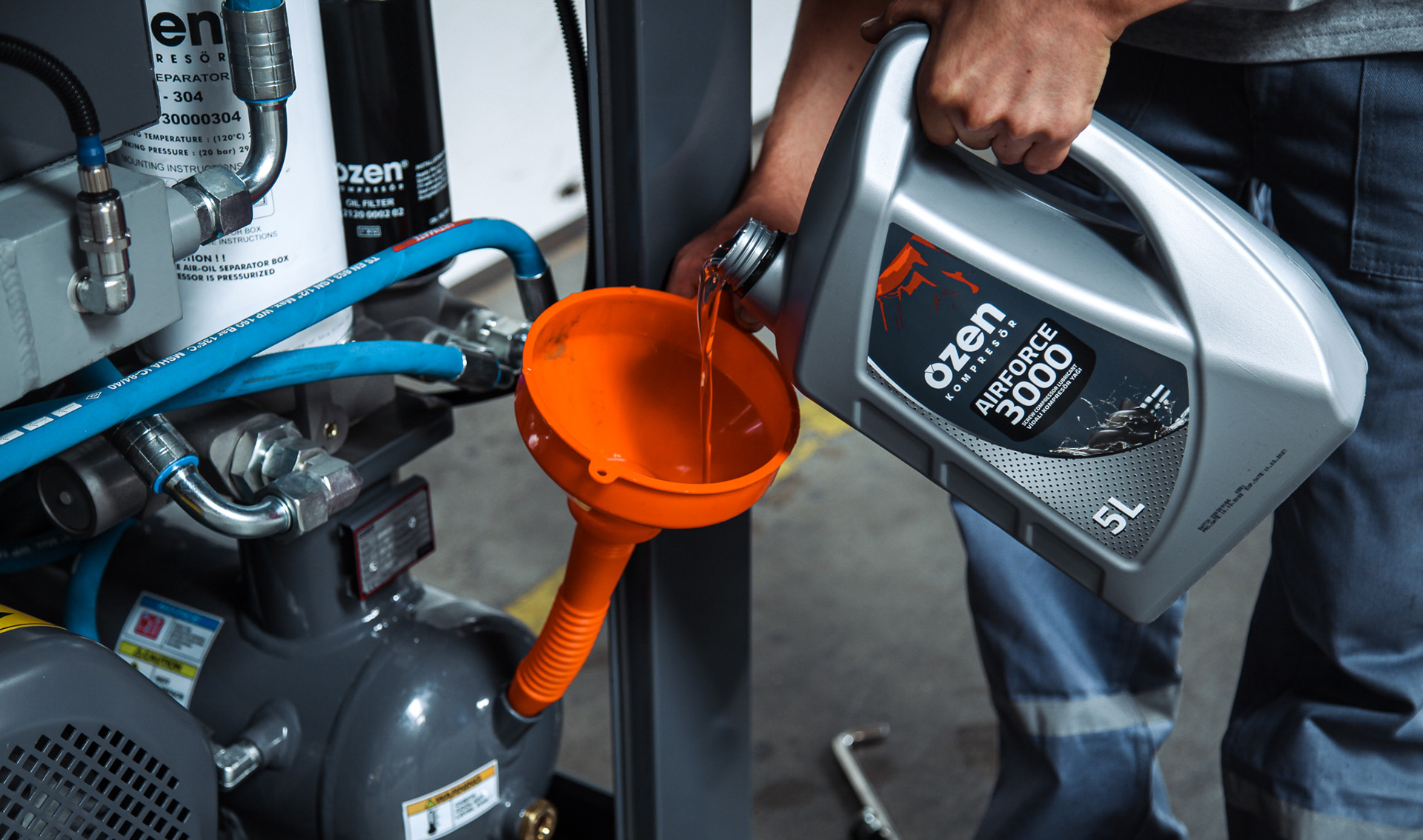Checking the Oil Level and Adding Oil to the Compressor
14 April 2023, Friday

Air compressors work similarly to car engines. They contain many moving parts which allow the compressor to work by moving either in parallel with each other or in the opposite direction depending on their location and function. We said that there are many moving parts in the compressor and these parts are in constant interaction. This is precisely where the oil in the compressor plays a critical role. We discuss many details in this article ranging from checking compressor oil levels to the consequences of putting too much oil in the compressor.
Why Is There Oil in the Compressor?
We know that the compressor compresses the air it receives from the atmosphere with the help of moving and constantly interacting parts. Since all these interacting parts have the same structure, the interaction between them causes them to wear out and lose their function over time. If you do not check its oil level and replace the oil on time, you will see the compressor lose its ability to compress and a drop in air quality. Compressors have oil so that these parts can interact with each other freely and do not damage each other when interacting.
Another benefit of having oil in the compressed air compressor is to prevent the compressor from heating up. When the parts inside the compressor work, heat is generated as a result of friction. The compressor oil inside the compressor keeps this heat in balance. Likewise, a lack of oil in the compressor will increase friction, causing the compressor to heat up more and not work.

Finally, another advantage and job of the oil in the compressed air compressor is to make the compressor run quietly. In fact, what we are talking about is the benefits to the compressor provided in all three jobs when its parts are slippery. When they are slippery, the parts will not have much friction when they contact one another, so the compressor will run quieter.
In short, oil in the compressor extends the compressor's life, allows it to operate more efficiently, and at the same time prevents it from making too much noise. This is why it is imperative to monitor the oil level in the compressor regularly and change the oil regularly, too.
How Do We Check the Oil Level in the Compressor?
Compressor oil is a key element in a compressor and checking it is quite simple. Compressors are designed with a special compressor oil window for longer life positioned so that both the compressor owner and the service technicians can see it easily. The compressor oil window is usually located on both sides of the compressor. With it, you can easily check how much oil is left in the compressor.
When checking the oil level in the compressed air compressor, you must make sure that the floor is flat and the compressor is stable. Once both these conditions are met, you can easily learn the compressor’s actual oil level.
You must never start the compressor if there appears to be too much or too little oil in it. Observe the oil level by holding it steady on a flat surface for a while and if the situation is still abnormal, get it serviced.
How Do We Add Oil to the Compressor?
Adding compressor oil is not as easy as you might think. Compressor oil is added through the oil cap on top of the compressor. You need to open the oil cap on the compressor. But at this point, you have to drain all the old oil inside the compressor. You can do this using the drain valve. You can add oil through the compressor cover using a funnel. You can check the oil through the oil window. If you put in too much, use the valve to drain some; if you put in too little, add more.
What Happens if We Do Not Change the Compressor Oil?
We can say that not changing the compressor oil will directly shorten the compressor's lifespan. The parts that interact with each other will wear each other out over time, causing the compressor to lose its functionality after a while. Also, if you do not change the compressor's oil, you will notice that the compressor operates much louder than normal. This is an indication of increased friction in the compressor and damage to the parts that can’t be seen. Therefore, you should change the oil regularly every 3-5-8-12 months depending on use.
Sometimes, when we don't use the compressor much, we think we don't need to change the oil. However, the oil's useful life is 12 months. Therefore, whether you use the compressor or not, you must change the oil.
What Should We Consider When Changing the Compressor Oil?
When changing the compressor oil, you must make sure you have completely drained all the old oil. As the old oil has not lost its functionality, it would be wrong to mix it with new oil.
Another point you should pay attention to when changing compressor oil is not to put in too much oil. Putting in too much oil will reduce the system’s quality.
You must buy the right compressor oil for the machine. This is because not all compressors use the same oil. You can buy compressor oil to suit the age of the compressor and its working principle. Take care to buy original compressor oil and if possible, do not forget to seek assistance from an authorized service centre to make the change.
Always check the oil when refilling the compressed air compressor. The small window where you can see the compressor oil will come in very handy here. Use this window to make sure you have the optimum oil level.
What Happens if We Put Too Much Oil in the Compressor?
Putting too much oil in the compressor will not shorten its life. But if this oil gets ejected through the compressed air line, you will notice a drop in the compressor's air quality. In short, putting too much oil in the compressor will cause the compressor to leak oil or compressor oil to get into the compressed air.
